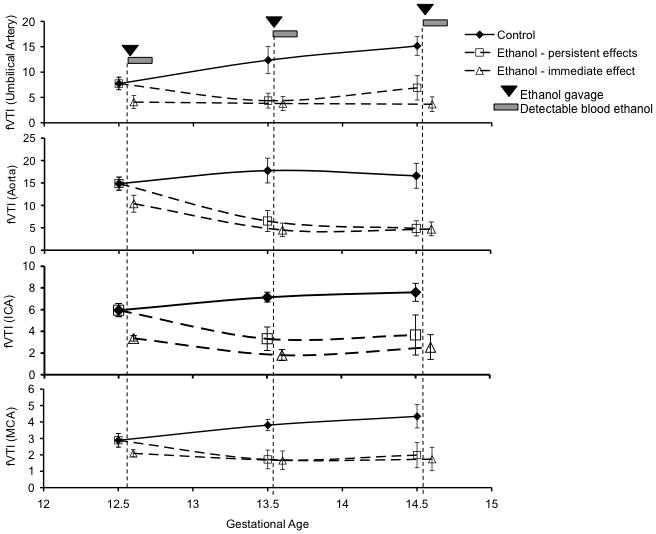Figure 10.

Repeated maternal ethanol exposure results in persistent suppression of fVTI in fetal blood vessels. Pregnant mice were exposed to ethanol (3g/kg) once a day by intragastric gavage for three consecutive days (GD12.5–14.5) and were imaged daily before and following maternal ethanol exposure to detect changes in fetal blood flow. Shown from top to bottom are graphical representations of changes in fVTI in fetal umbilical artery, aorta, internal carotid artery and middle cerebral artery. A persistent fetal effect is defined as one that can be observed 24 hours after an episode of maternal ethanol exposure (i.e., an effect observed at GD13.5 and 14.5 due to exposures on GD12.5 and 13.5), while the acute effect is defined as the additional effect of a maternal binge-like exposure episode on that day, in the period immediately preceding the ultrasound scan. In all vessels, we observed a main effect of ethanol exposure, but no interaction between gestational age and ethanol exposure on fVTI. Visual inspection of the data show that maternal ethanol exposure on GD12.5 induced a persistent decrease in fVTI 24 hours later, and this decrease in fVTI persisted with repeated maternal ethanol exposure, though the magnitude of the decline did not increase with subsequent exposures.
